
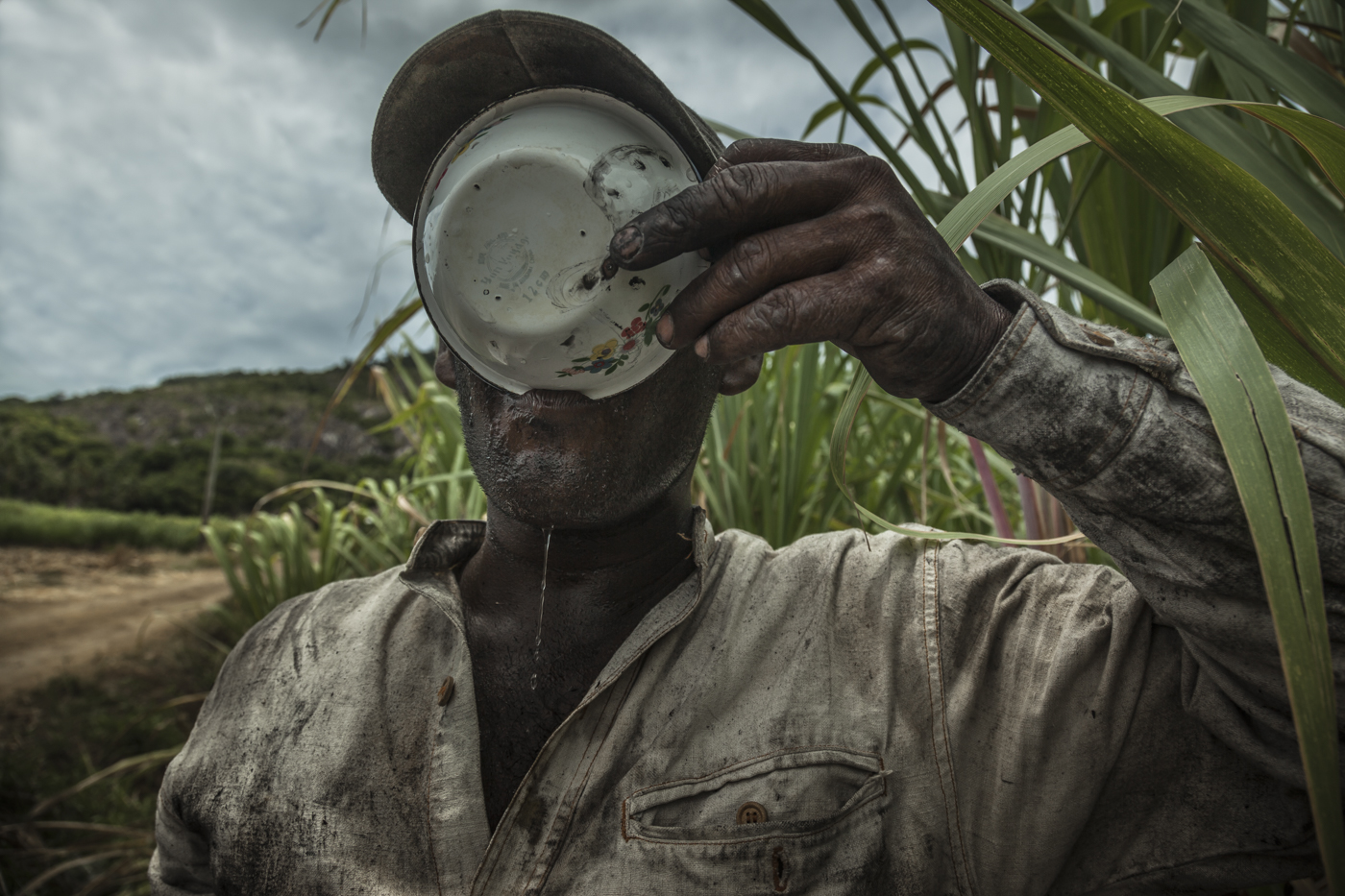
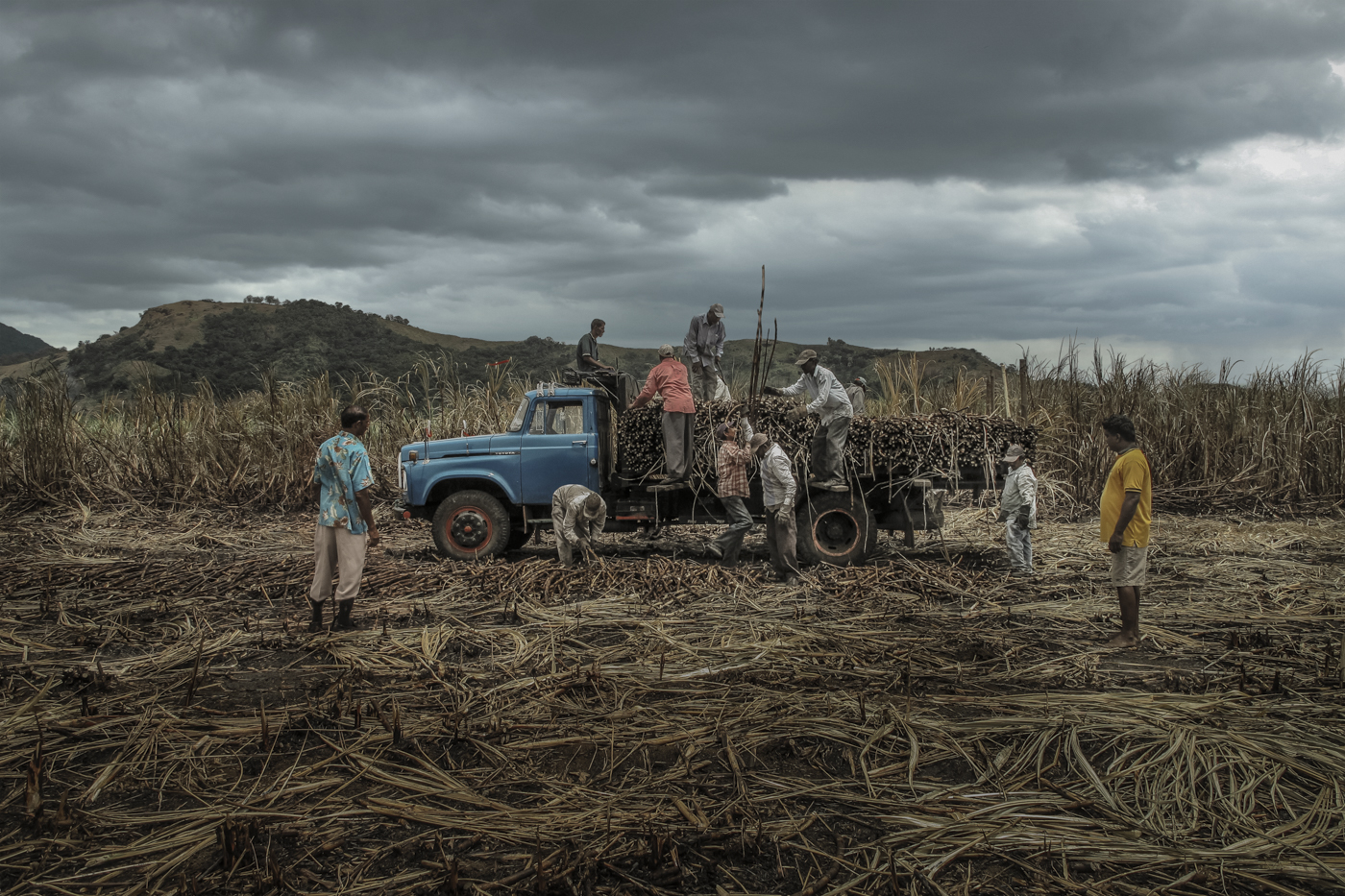
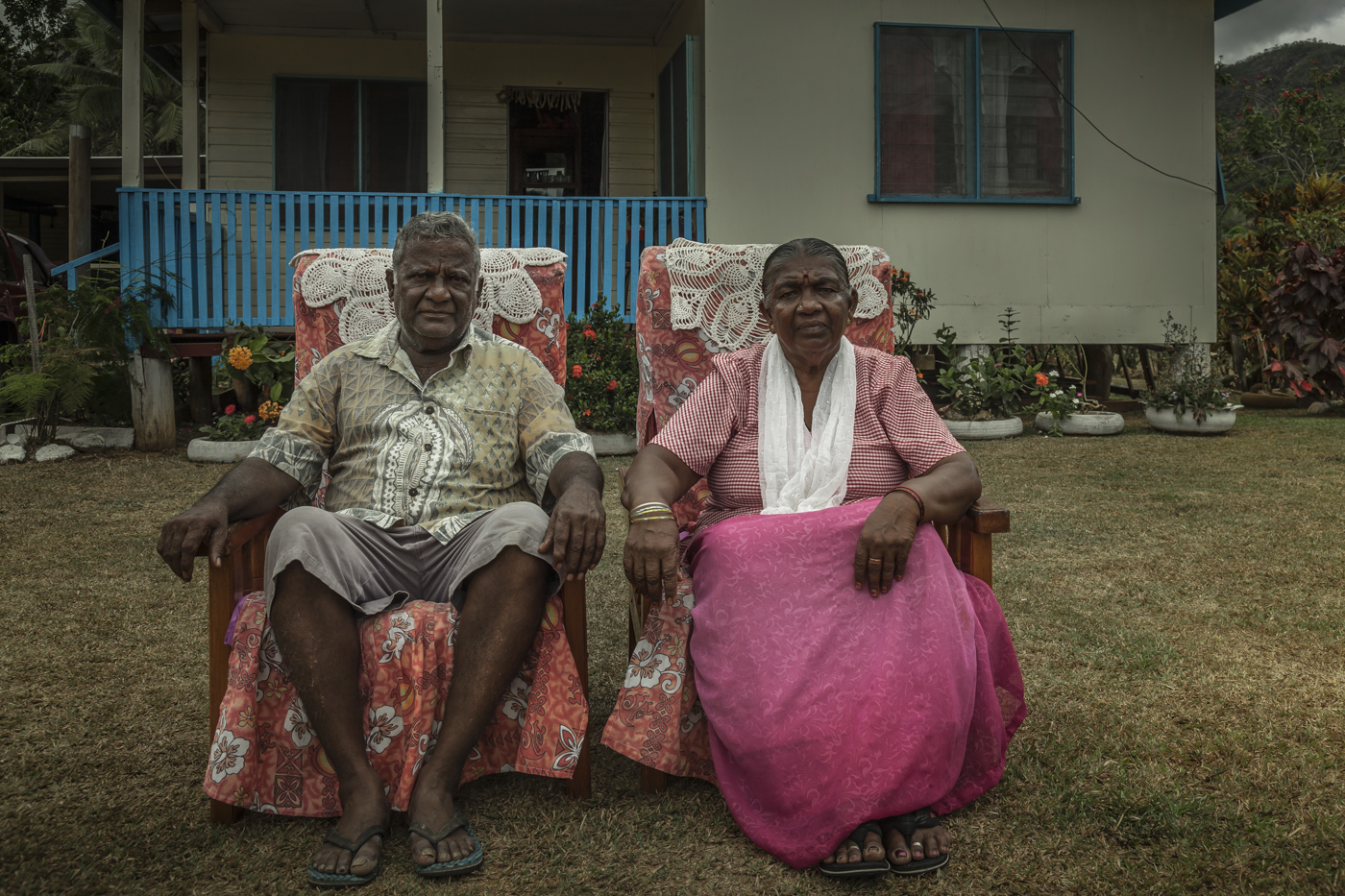
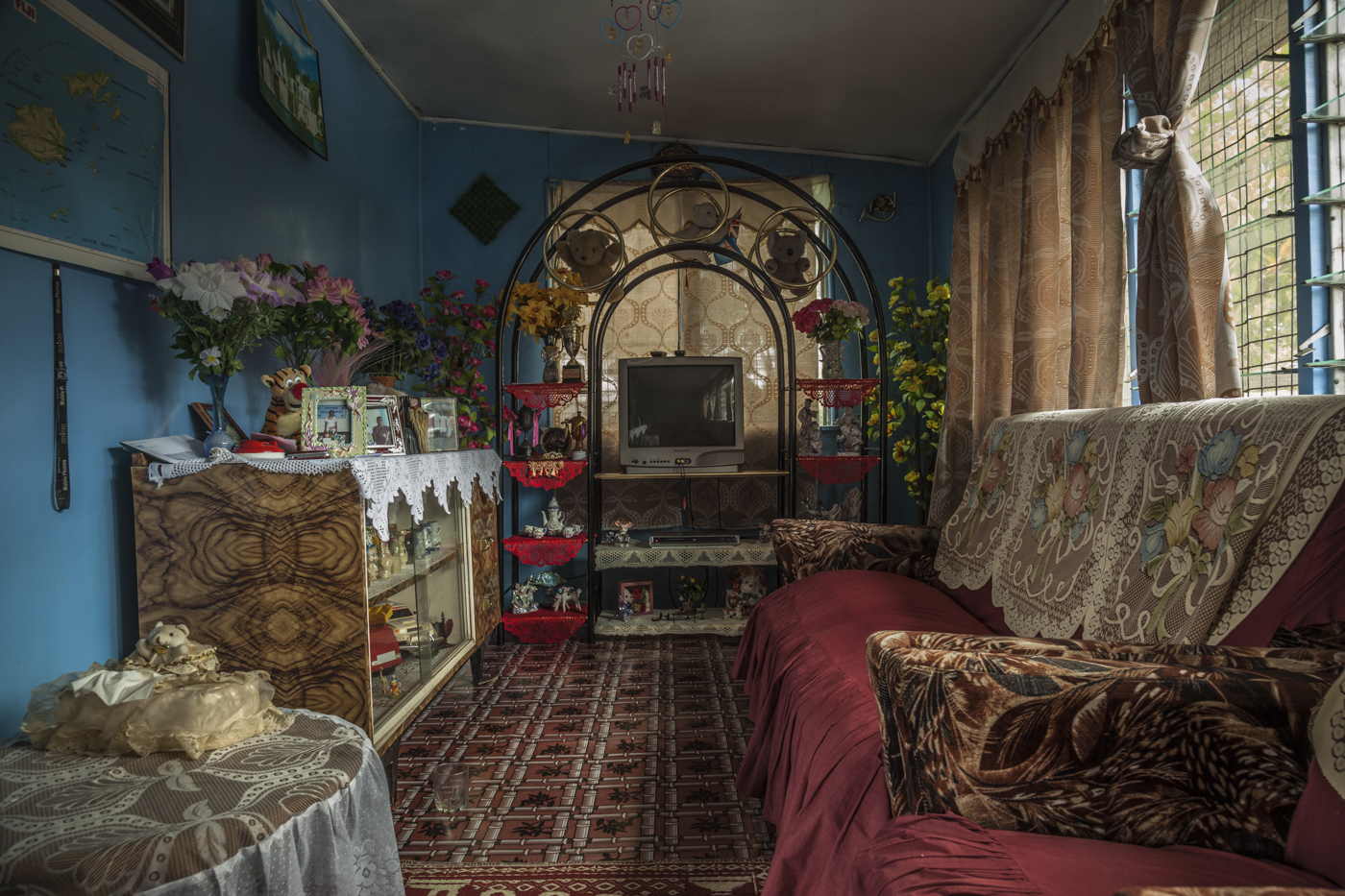
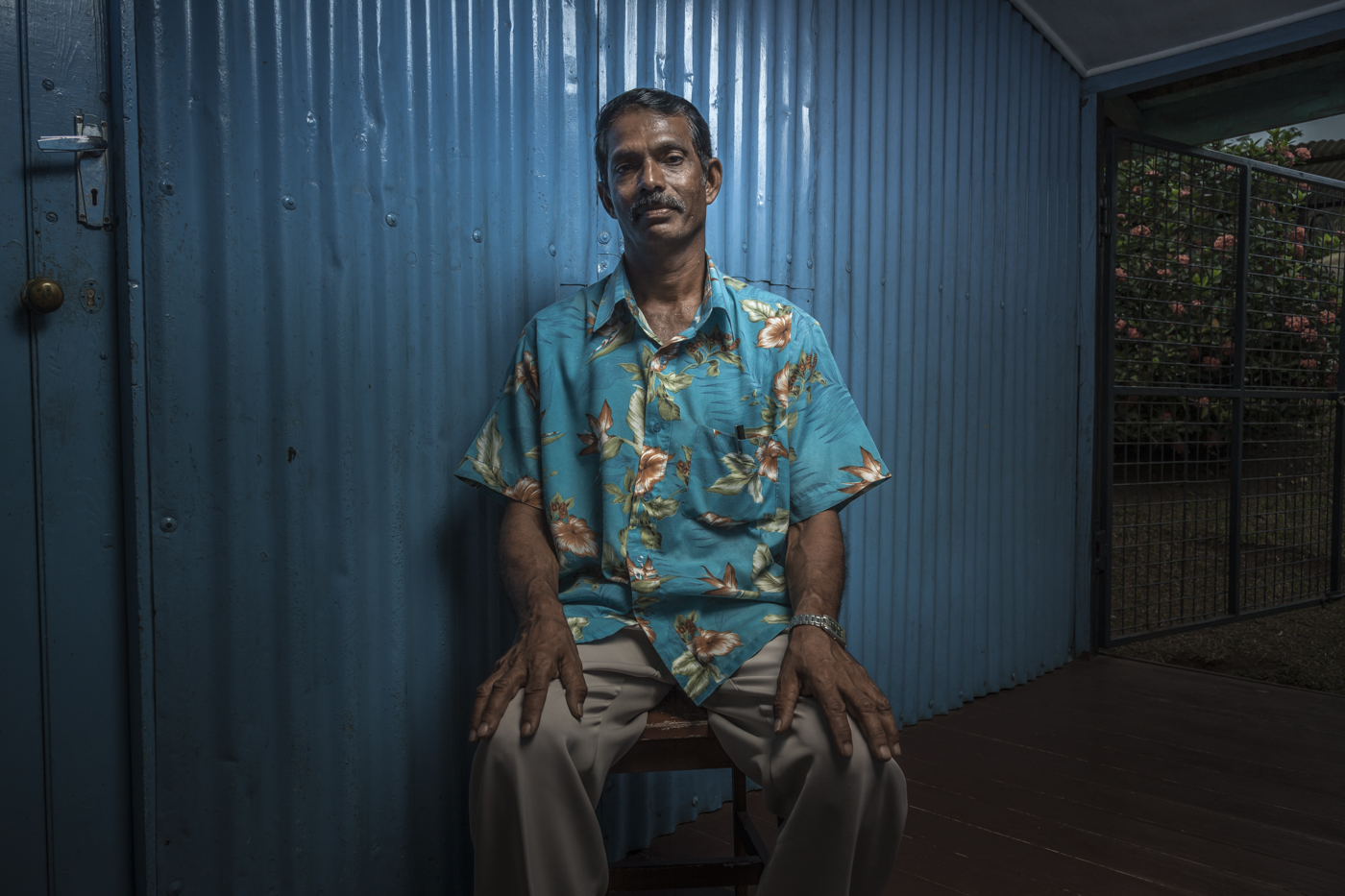

Artist's Statement
Goode+Williams
The Fijian-Indian community has been in Fiji for generations, descendants of indentured labourers who established the colonial sugar industry but now face uncertainty and ethnic tension.
Denied the right to own land through a colonial legacy that placed all landholding with the indigenous Fijians, Fijian-Indian farmers leased small parcels of land after indenture ended and built a world of their own. Some families still live on sugarcane farms their descendants leased a hundred years ago planting and harvesting cane by hand.
As their communities grew, ethnic tensions developed. Their tight knit and often successful communities have been regarded with mistrust and envy. Bought there by colonialists who have long since moved on, there’s no clear agreement about their right to be there. Just the right to belong, born on the sugarcane farm.
They are the ‘black Jews’ of the Commonwealth, never completely secure, not fully at home in the country of their birth, facing an implicit and sometimes ouvert racist tension. This is a story repeated in different forms but with the same tones in Fiji, Guyana and South Africa, a complex legacy that calls into question ideas of race, land and belonging.
Fijian-Indians have most recently endured three coups that manipulated racial tension and faced the call to ‘go home’. But any direct connection to India has long since disappeared. They are marooned by history.
The last coup placed an indigenous Fijian army general in charge who has now made a direct call for improved racial tolerance.
After years of racial tensions, many emigrated with those staying behind often caring for elderly parents and the family sugarcane farm.
Stylistically we reference American settler photography and place families proudly outside their homes. The furniture rooting them to the land. Brutal labour is heroic. Land enables history and belonging to endure.
A collaborative digital archival photographic project by Pam Goode and Chris Williams.


